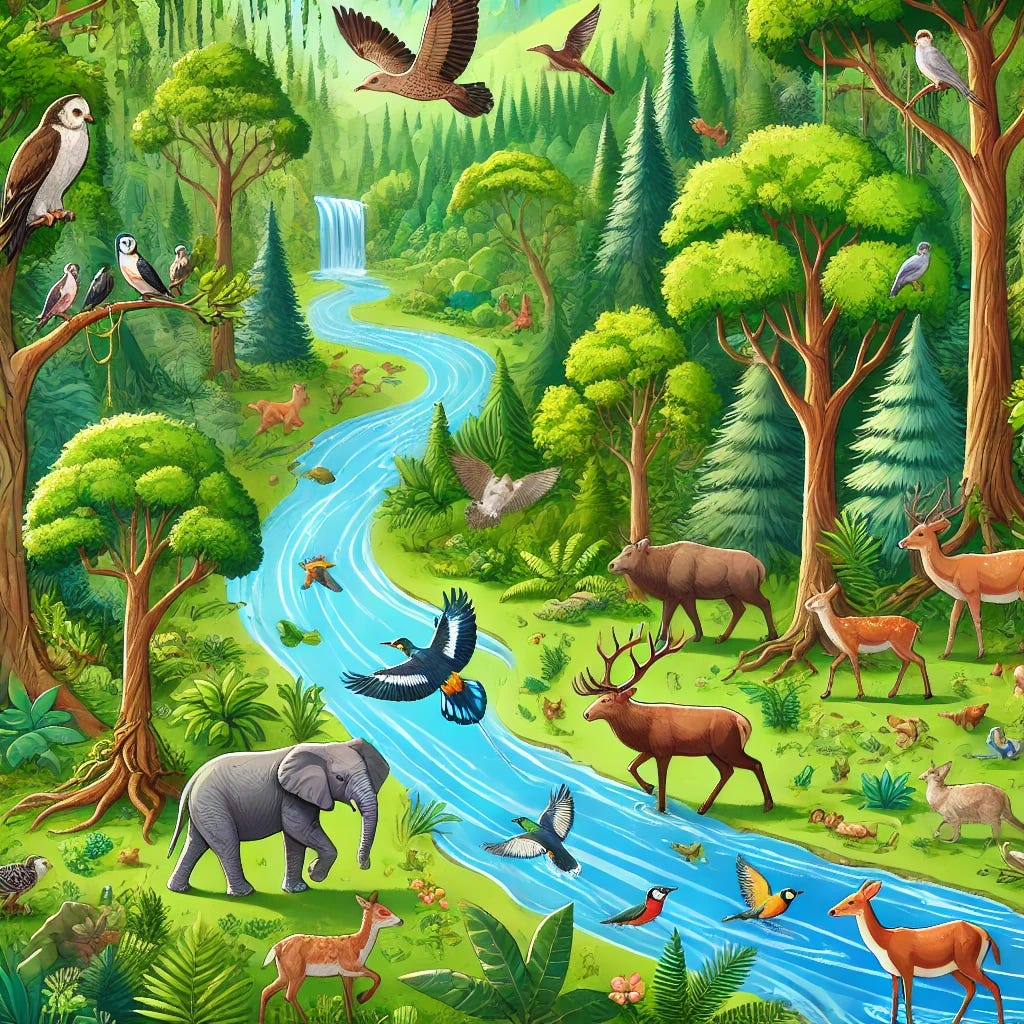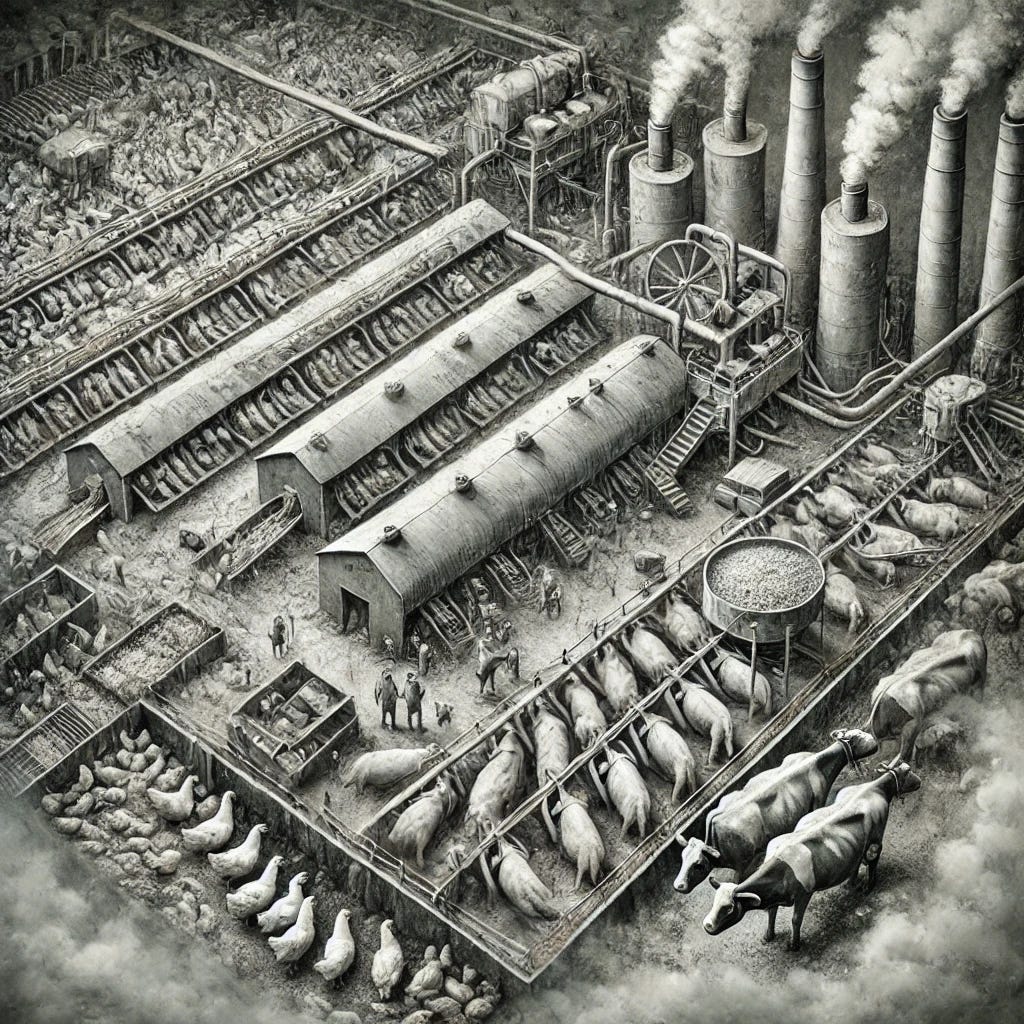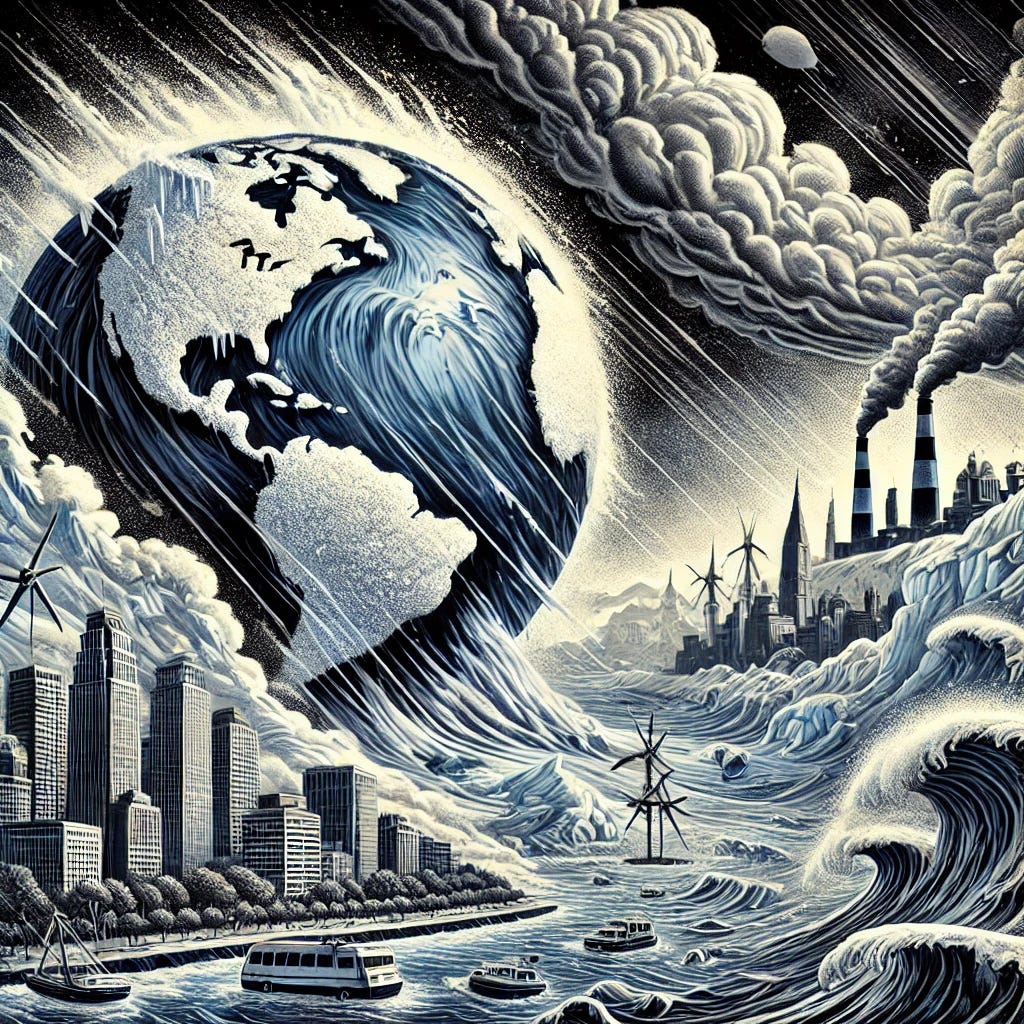In the vibrant discourse of humanism, where the dignity and rights of humans are exalted as the pinnacle of ethical consideration, there lies a deep-seated contradiction. This contradiction is the unchecked endorsement of anthropocentrism—the doctrine that places humans at the epicenter of the Earth's narrative to the detriment of the broader ecological system that sustains all life forms. While humanism zealously advocates for human rights and individual dignity, it paradoxically turns a blind eye toward the non-human elements that are crucial to our planet's balance and diversity.
Humanism's Ecological Oversight
Humanism's human-centric philosophy often overlooks the intrinsic value of ecosystems and non-human life. Forests, for instance, are frequently viewed merely as resources for lumber rather than as complex ecosystems that house diverse species and play critical roles in carbon sequestration. Similarly, rivers are often reduced to utilitarian terms, valued only for their roles in human agriculture and water supply, ignoring their ecological importance in sustaining aquatic life and regulating natural systems.
The Case of Industrial Farming
Take the example of industrial farming—a direct product of an anthropocentric viewpoint. This practice not only treats animals as mere production units but also significantly contributes to environmental degradation through methane emissions, overuse of water resources, and deforestation. Humanism's focus on human needs and comforts often justifies such exploitative practices, sidelining the ethical implications of animal suffering and environmental impact.
Wildlife Conservation Ignored
In wildlife conservation, the anthropocentric approach is palpably evident. Conservation efforts are frequently skewed towards species that benefit humans directly, whether as pollinators for agriculture or as part of ecotourism ventures. Meanwhile, species that lack obvious utility to human interests face neglect or extinction. This selective concern undercuts the broader environmental needs and the rights of countless species to exist independently of human utility.
Climate Change: A Call for an Extended Ethical Framework
The looming threat of climate change further exemplifies the need for a reformed humanistic ethic that transcends human-only concerns. Rising sea levels, extreme weather events, and global temperature increases are not just abstract phenomena; they result directly from human-centric policies that prioritize immediate human needs over long-term planetary health. The humanist movement has been slow to integrate these global concerns into its ethical framework, often treating them as peripheral issues compared to human socio-political rights.
Redefining Humanism for the Anthropocene
It is imperative for humanism to evolve and recognize the interconnectedness of all life forms. A truly progressive humanism would not only champion the cause of human rights but would also advocate fiercely for the rights of all beings and the stewardship of the planet itself. We need a holistic approach that considers the welfare of ecosystems, the rights of animals, and the health of our planet as integral to our ethical considerations.
Humanism must expand its vision to embrace a truly universal ethic—one that recognizes the symbiotic relationship between humans and the natural world. Only then can we hope to address the profound environmental and ethical challenges of our time, ensuring a just and sustainable future for all inhabitants of Earth.







